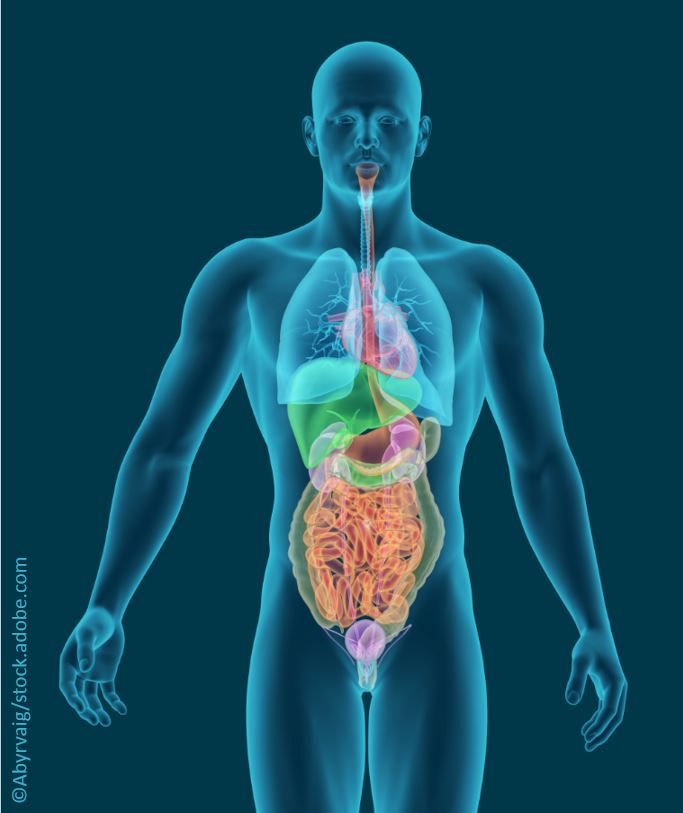- Clinical Technology
- Adult Immunization
- Hepatology
- Pediatric Immunization
- Screening
- Psychiatry
- Allergy
- Women's Health
- Cardiology
- Pediatrics
- Dermatology
- Endocrinology
- Pain Management
- Gastroenterology
- Infectious Disease
- Obesity Medicine
- Rheumatology
- Nephrology
- Neurology
- Pulmonology
Ulcerative Colitis May be an Independent Risk Factor for Hypertension: UK Biobank Analysis
Persons with inflammatory bowel disease (IBD) were found to have a higher risk for hypertension than the general population in a large new analysis of data from the UK Biobank.
Further, according to investigators who published their findings in the United European Gastroenterology Journal, ulcerative colitis (UC) but not Crohn disease or unclassified IBD (IBD-U), was identified as an independent risk factor for hypertension.
Study authors, led by Ren Mao, MD, PhD, associate professor in the department of gastroenterology, The First Affiliated Hospital of Sun Yat-sen University, Guangzhou, China, say that the findings provide suggest the need for routine screening for and early management of hypertension in patients with IBD.

Mao and colleagues tapped the UK Biobank for study data, screening all 502 505 participants with eligible data between 2006 and 2017. Exclusions were made for a diagnosis of hypertension at recruitment; history of cardiovascular disease, diabetes, or stroke at recruitment, and a new diagnosis of IBD during study follow-up. Follow up began at study enrollment and proceeded until an outcome event occurred or the end of the study (March 31, 2017). The primary outcome was occurrence of hypertension as diagnosed by a primary care provider or included on hospital admission records or death register during follow-up.
The association between IBD onset and subsequent incidence of hypertension was analyzed using multivariate Cox regression analysis. Propensity score matching was applied for sensitivity analysis.
The final study cohort numbered 281 064 of which 43% were women and the majority was White. Mean age was 55 ± 8 years with just more than one-third (36.2%) aged ≥60 years. The majority responded that they drank alcohol and 57.1% were nonsmokers.
FINDINGS
Mao and colleagues reported that of the 281 064 participants, 2376 (0.8%) were diagnosed with IBD at baseline, and 20 129 (7.2%) of the entire cohort developed hypertension during a median follow-up period of 8.1 years.
Their analysis revealed that the cumulative risk of hypertension among patients with IBD was higher than for the general population (10.9% in UC, 7.7% in Crohn disease, and 9.3% in IBD-U; P<.001).
Further, multivariate Cox regression analysis identified that UC, not CD or IBD-U, was independently associated with subsequent occurrence of hypertension (HR 1.30, 95% CI 1.11–1.52, P=.001).
In sensitivity analyses using propensity score matching, only UC was found to be a risk factor predictive of hypertension onset (HR 1.56, 95% CI 1.21–2.03, P =.001).
Other risk factors for hypertension identified were use of steroids (HR 1.33, 95% CI 1.20-1.47, P<.001), use of immunosuppressive agents (HR 1.32, 95% CI 1.16-1.50, P<.001), and age >60 years (HR 2.17, 95% C 2.10–2.24, P<.001).
Prespecified subgroup analyses and interaction tests between UC status and categorical characteristics found that HR of UC for hypertension differed between groups with anxiety (HR 1.01, 95% CI 0.75–1.36 , P=.933) and without anxiety (HR 1.46, 95% CI 1.21–1.76, P<.001), and the interaction effect between UC and anxiety was significant (P=.040). UC predicted a risk for hypertension only in the subpopulation of participants without (vs with) a history of antihypertensive medications (HR 1.36, 95% CI 1.15–1.59, P<.001) with a borderline interaction seen between UC and use of antihypertensives (P=.078).
The authors note that while there are no similar studies with hypertension as an endpoint, they believe their current findings are at least partly consistent with studies that have examined links between IBD and major adverse cardiovascular events. The choice of these endpoints, they suggest, “might underestimate the endothelial dysfunction caused by the disease. On the contrary, hypertension occurs earlier and more frequently than those hard endpoints and may be more sensitive to spot early vascular endothelial injuries which have long-term systemic harmful effects.”
They conclude by calling for enhanced management of patients with IBD to including screening etc “ to minimize disease activity and prevent cardiovascular events in clinical practice.”
Reference: He J, Zhang S, Qiu Y, et al. Ulcerative colitis increases risk of hypertension in a UK Biobank cohort study. United European Gastroenterol J. Published online December 12, 2022. doi:10.1002/ueg2.12351
